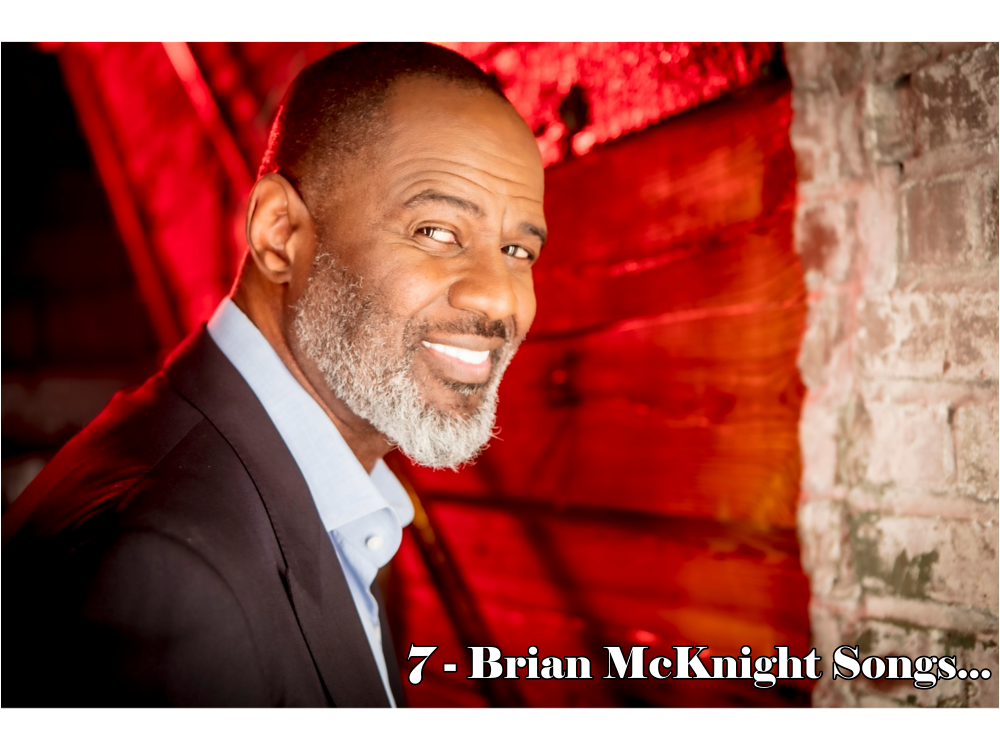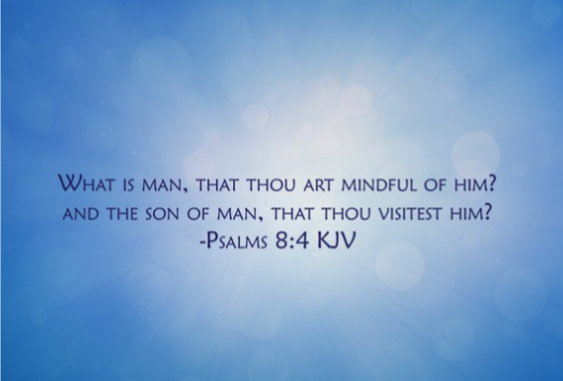(ThyBlackMan.com) The first time I heard Brian McKnight’s voice, it didn’t just sound good—it felt like love. That voice, warm and unwavering, wrapped around every lyric like an embrace. It wasn’t just smooth or technically flawless—it was sincere, like he was singing directly to the deepest part of your heart. Maybe it’s the way he takes the simplest words and gives them meaning, or how his falsetto feels like a gentle hand across your cheek when you need comfort most.
For so many of us raised on ‘90s and early 2000s R&B, his songs weren’t just background music—they were everything. They played during first kisses, heartbreaks, late-night conversations, and quiet reflections. His music understood us when we couldn’t quite explain what we were feeling. Whether you were learning how to love or figuring out how to let go, Brian had a song that spoke your truth.
What makes his catalog truly timeless is its emotional maturity. These aren’t just love songs—they’re honest reflections of connection, longing, growth, and the choices we make in relationships. They aren’t chasing trends or charts; they’re built to last. So whether you’re revisiting his classics or hearing them with new ears, here are 7 Brian McKnight songs that still know how to touch the soul—just like they always have.

1. Back at One
Arguably McKnight’s signature hit, “Back at One” is more than a ballad—it’s a blueprint for love. The song’s concept of counting through the steps of affection is simple, yet profoundly effective. “One… you’re like a dream come true” sets the tone, drawing listeners into a gentle but confident declaration of love that builds with each verse. This counting structure isn’t just a lyrical gimmick—it’s a methodical, almost poetic way to frame how love deepens and matures with intention.
There’s something universal in how this song communicates vulnerability without desperation. McKnight isn’t just serenading his lover; he’s laying down the emotional infrastructure for a relationship built on purpose. Each “number” in the song peels back another layer of devotion, highlighting not only love’s passion but its patience, discipline, and quiet joy. You don’t just hear the words—you feel them, especially in the tender phrasing that seems to be crafted for every listener’s personal experience.
Musically, “Back at One” is minimal but masterfully arranged. The piano leads with understated grace, the kind that invites rather than demands attention. McKnight’s falsetto is flawless, gliding effortlessly across each line with emotional clarity. The subtle production leaves space for every syllable to shine. Even decades later, this song remains a go-to for weddings, proposals, and anniversary playlists because it captures something timeless—love as a slow, steady unfolding, rather than a flash-in-the-pan spark. In a world overrun by hyperactive romance narratives, this song is a reminder that true love often moves in steps, not leaps.
2. Anytime
“Anytime” is one of those songs that makes you stop whatever you’re doing. It’s built on the kind of emotional vulnerability that very few artists dare to explore with such honesty. The core question—“Do I ever cross your mind… anytime?”—is deceptively simple but loaded with emotional weight. It’s the kind of lyric that echoes in the hearts of anyone who has wrestled with unspoken feelings or longed for someone who’s no longer present.
What elevates this song is McKnight’s delivery. He doesn’t scream or belt his sorrow; instead, he lets it seep through slowly, like a quiet ache you didn’t know was there until it surfaced. His voice carries both hope and heartbreak, refusing to choose between the two. It’s the kind of performance that doesn’t just ask a question—it lives inside it. His falsetto on the chorus doesn’t just hit the note—it pierces the listener. And yet, he never loses control. The restraint in his voice mirrors the restraint in the storyline—a man who wants to reach out but doesn’t, who aches but holds it in.
The arrangement enhances the song’s emotional gravity. It’s sparse—mostly soft piano and strings—but there’s a haunting quality that lingers. The instrumental feels like a conversation with silence itself. This is what makes “Anytime” endure in the playlists of those who use music to process life. Even now, it finds new relevance among listeners who understand that love isn’t always cleanly wrapped up. Sometimes, it’s just a question that never gets answered.
3. One Last Cry
This is the song that introduced many listeners to Brian McKnight’s ability to marry technical precision with raw, emotional storytelling. “One Last Cry” is about that fragile, final stage of heartbreak—the moment right before someone chooses to heal. It’s a farewell not just to a person, but to the pain itself. When he sings, “One last cry before I leave it all behind,” it’s a promise whispered into the void, full of both sorrow and courage.
McKnight’s vocal performance here is nothing short of masterful. There’s a noticeable shift in his tone as the song progresses—from barely-contained sorrow in the beginning, to soaring, cathartic release in the chorus. The verses are quiet, intimate, like pages from a diary, while the chorus bursts open with a flood of emotion. He doesn’t over-sing—he lets the pauses, the breath between lines, carry just as much weight as the notes. That kind of restraint takes both skill and empathy, making the track feel deeply human.
The instrumental is stripped back, mostly led by piano, with strings that build subtly in the background. That minimalism allows McKnight’s voice to remain front and center, highlighting every shift in tone and emotional shading. There’s a classical quality to the composition—it could easily be played on a grand piano in a theater, yet it feels just as natural coming through a pair of headphones at 2 a.m. in a dimly lit room. Even now, this song remains a go-to for anyone trying to process the grief of a relationship ending. It doesn’t offer false hope or quick fixes—it simply holds space for that last tear before the rebuilding begins.
4. Love of My Life
“Love of My Life” captures the essence of a grown-up, grounded kind of love—the kind that isn’t about infatuation or fireworks, but about presence, trust, and unwavering commitment. There’s no drama here, no pleading or regret. Instead, McKnight paints a picture of stability, a rare theme in a genre often centered around the chaos of relationships. He sings not like a man who’s falling in love for the first time, but like someone who’s been through the trenches of life and finally found a peaceful place to land.
What sets this song apart is its serenity. The lyrics speak to everyday moments—of quiet understanding, shared glances, and emotional safety. This is music for those who know that love isn’t always loud or urgent. Sometimes it’s calm. Sometimes it’s in the small gestures. McKnight’s phrasing throughout the song feels intentionally intimate, like a whispered vow rather than a grand performance.
Instrumentally, the acoustic guitar and soft percussion lend a light, almost breezy feel that blends perfectly with the sincerity of the lyrics. His vocals are relaxed and conversational, making it feel as though he’s talking directly to the person he loves—and by extension, to anyone who’s ever felt seen and valued in a relationship. In a time where performative romance dominates the charts, “Love of My Life” still feels radical in its gentleness. It’s the soundtrack for real relationships—the kind built on time, not just chemistry.
5. 6, 8, 12
“6, 8, 12” is a quiet storm of emotion—a slow-burning ballad that takes listeners into the hollow space left behind after a deep heartbreak. It’s a meditation on time and grief, with each number—six, eight, twelve—marking not just the months since the breakup but the milestones of sorrow. These aren’t just measurements; they’re emotional chapters. The heartbreak hasn’t faded; it’s only deepened, stretched out by sleepless nights and unanswered questions.
There’s an emotional patience in this song that makes it all the more powerful. McKnight doesn’t rush through the pain—he sits with it. He doesn’t scream or beg. Instead, he lets the sadness quietly speak through lyrics like, “Now all I can do is cry.” That line isn’t just sung—it’s felt, as if those tears are falling in real-time. His delivery is honest and weary, the kind of weariness that comes from truly loving someone who’s no longer there.
The orchestration deepens the song’s emotional pull. Swelling strings and somber piano chords give it a cinematic weight, turning the song into something that feels larger than life. Yet, the emotion remains grounded, raw, and deeply personal. In today’s fast-paced dating culture—where feelings are often broadcast and performative—“6, 8, 12” is a return to private pain. It reminds us that healing isn’t linear and that some love stories don’t come with neat endings. For anyone who’s ever felt stuck in the in-between, this song is a beautiful and necessary companion.
6. Find Myself in You
“Find Myself in You” is a soul-stirring reminder that love, at its best, reveals rather than obscures who we are. The song is an ode to the kind of partnership that doesn’t complete you, but helps you better understand yourself. When McKnight sings about discovering pieces of himself in someone else, it’s not dependency—it’s growth through connection. That kind of emotional honesty elevates this track beyond the typical romantic ballad.
What makes this song particularly compelling is how it balances strength and softness. The lyrics are deeply vulnerable, but McKnight delivers them with quiet confidence. There’s a wisdom in his tone, a belief that love isn’t just about what someone does for you—it’s about what they awaken in you. That message resonates especially well in today’s culture, where emotional self-awareness is becoming more valued in relationships. This is the type of song that speaks to people who have matured through love, not just stumbled into it.
Musically, the track feels like a warm embrace. Soft piano notes create an intimate space, while the light guitar strumming adds warmth and rhythm without overpowering the vocal. McKnight’s phrasing here is impeccable—measured, emotive, and full of restraint. He doesn’t oversing; he lets the meaning rise to the surface organically. In a world full of grand declarations, “Find Myself in You” is the rare song that feels personal. It’s not meant to impress—it’s meant to connect. And that’s why, years later, it still does.
7. The Only One for Me
Closing out this list is a track that effortlessly showcases McKnight’s gift for making love sound both tender and timeless. “The Only One for Me” is a quiet storm of devotion—a song that doesn’t shout its affection but rather speaks it with the soft certainty of someone who knows exactly what they want. It’s not just a flirtation or a fleeting feeling; it’s a statement. From the first line, McKnight makes it clear: no one else even comes close.
Lyrically, the song balances the romantic and the sensual with incredible finesse. Phrases like “You’re the only one I need” don’t come off as generic, because McKnight infuses them with sincerity and clarity. He’s not just expressing desire; he’s pledging loyalty. That blend of emotional intimacy and romantic allure makes the song stand apart in a genre where love is often reduced to either heartbreak or heat. Here, it’s about partnership—a warm, constant presence that lingers long after the song ends.
The production leans into that mood with a silky smoothness that’s tailor-made for slow dances, late-night drives, or even quiet moments on the couch. The mid-tempo groove is gentle but rhythmic, anchored by a subtle drumbeat and bassline that pulses like a steady heartbeat. The keyboards shimmer just enough to give the track an ethereal vibe, while McKnight’s harmonies layer like velvet, giving the song its lush, almost three-dimensional feel. He doesn’t overpower the music—he blends into it, becoming part of the atmosphere itself.
In 2025, “The Only One for Me” still plays like a masterclass in grown-man R&B. It’s not performative; it’s personal. It’s the kind of song you send to someone when “I love you” isn’t quite enough—when you want to say, “You’re my peace, my choice, my constant.” There’s no need for flash or bravado here. Just truth, wrapped in melody. And that kind of music? It never goes out of style.
Revisiting these songs feels like opening a time capsule of emotion—yet somehow, nothing about them feels dated. Brian McKnight has always had a way of writing and singing that taps into something real, something human. His music doesn’t scream for attention; it simply speaks, and those who need it always find their way back to it.
In a world where music trends shift overnight, his songs remain steady companions. They’re for the lovers, the dreamers, the ones who’ve felt too much and said too little. These seven tracks are just the tip of the iceberg, but each one reminds us why Brian McKnight is in a class of his own. If you needed a reason to slow down and feel again, this is it.
Staff Writer; Jamar Jackson

















Leave a Reply